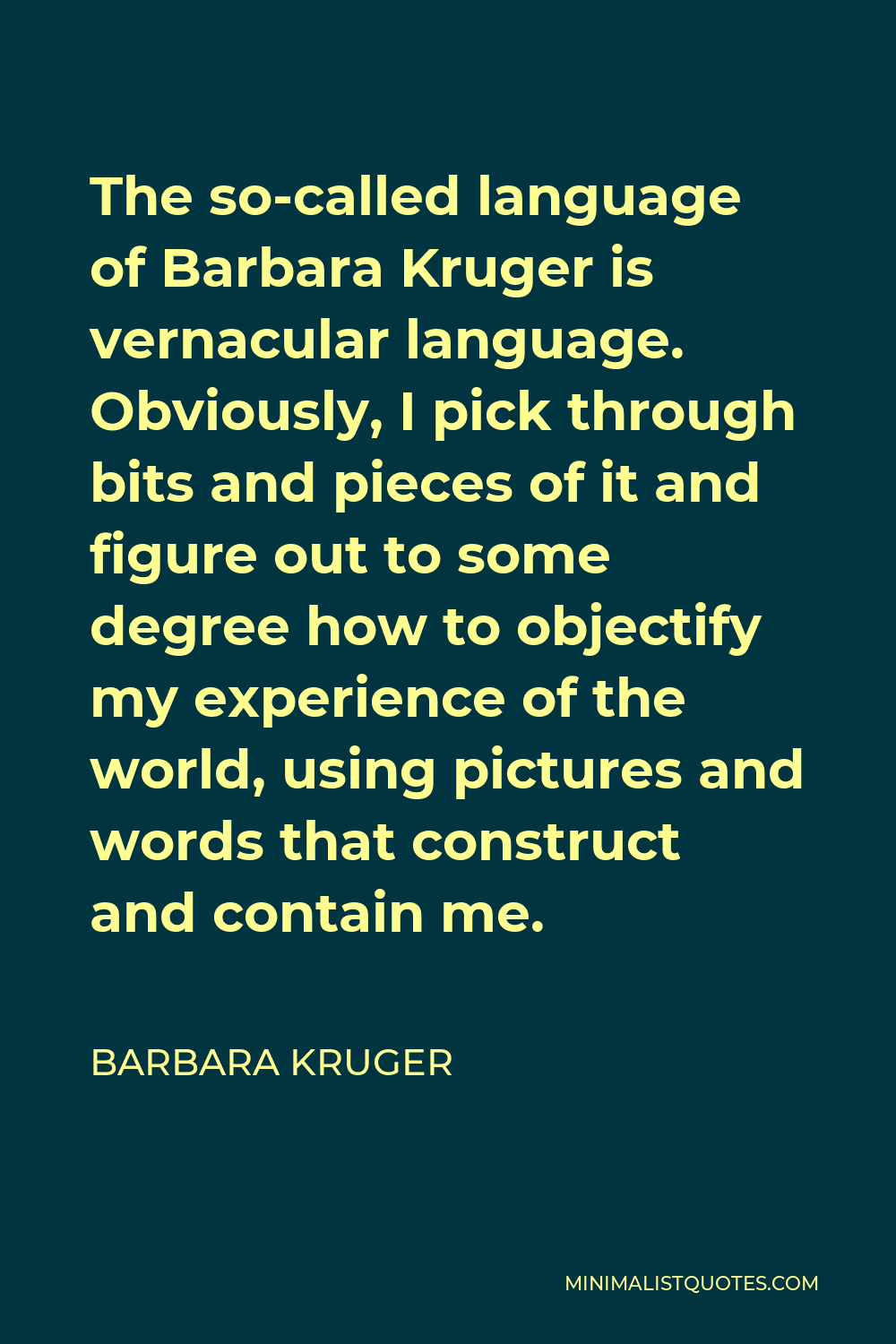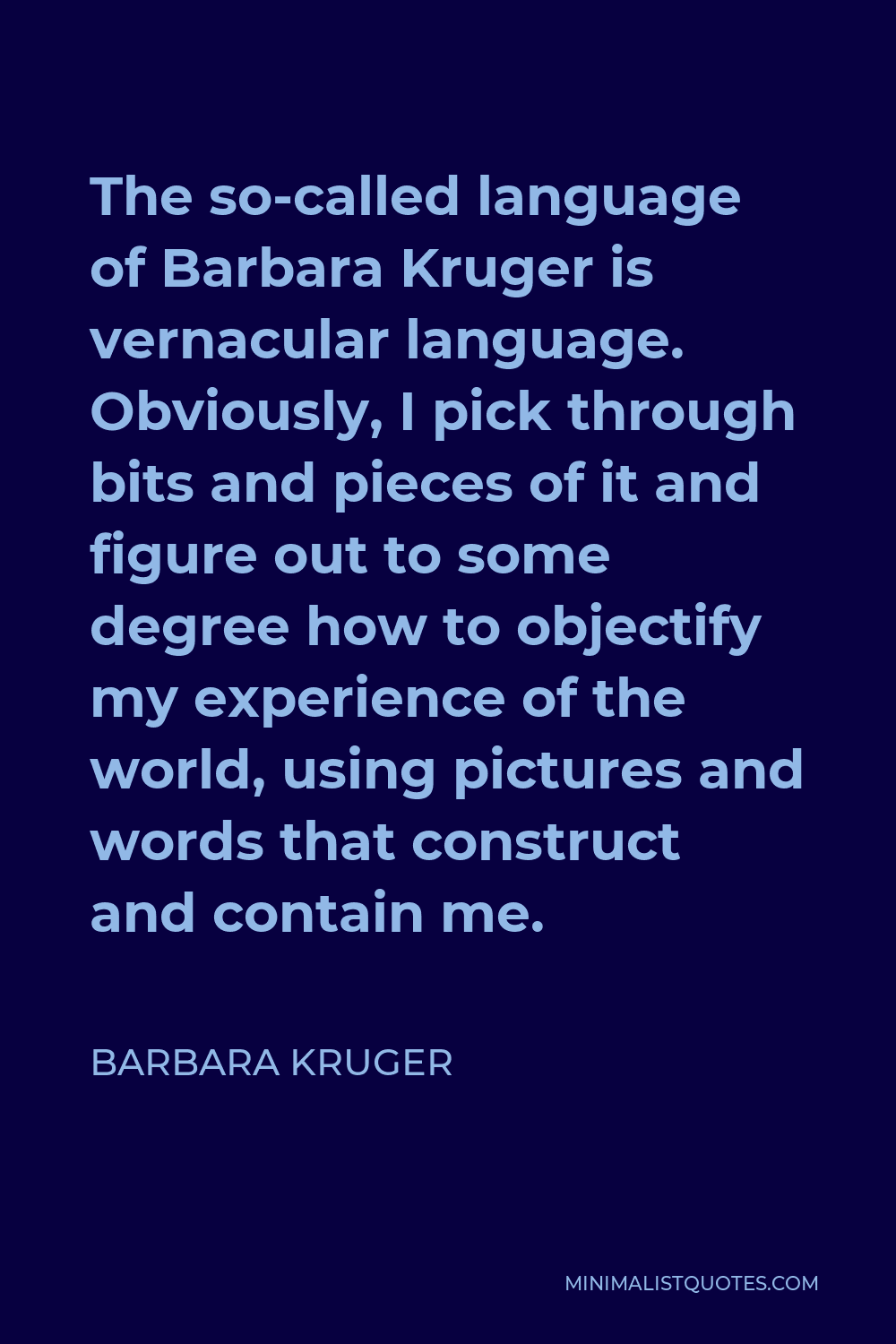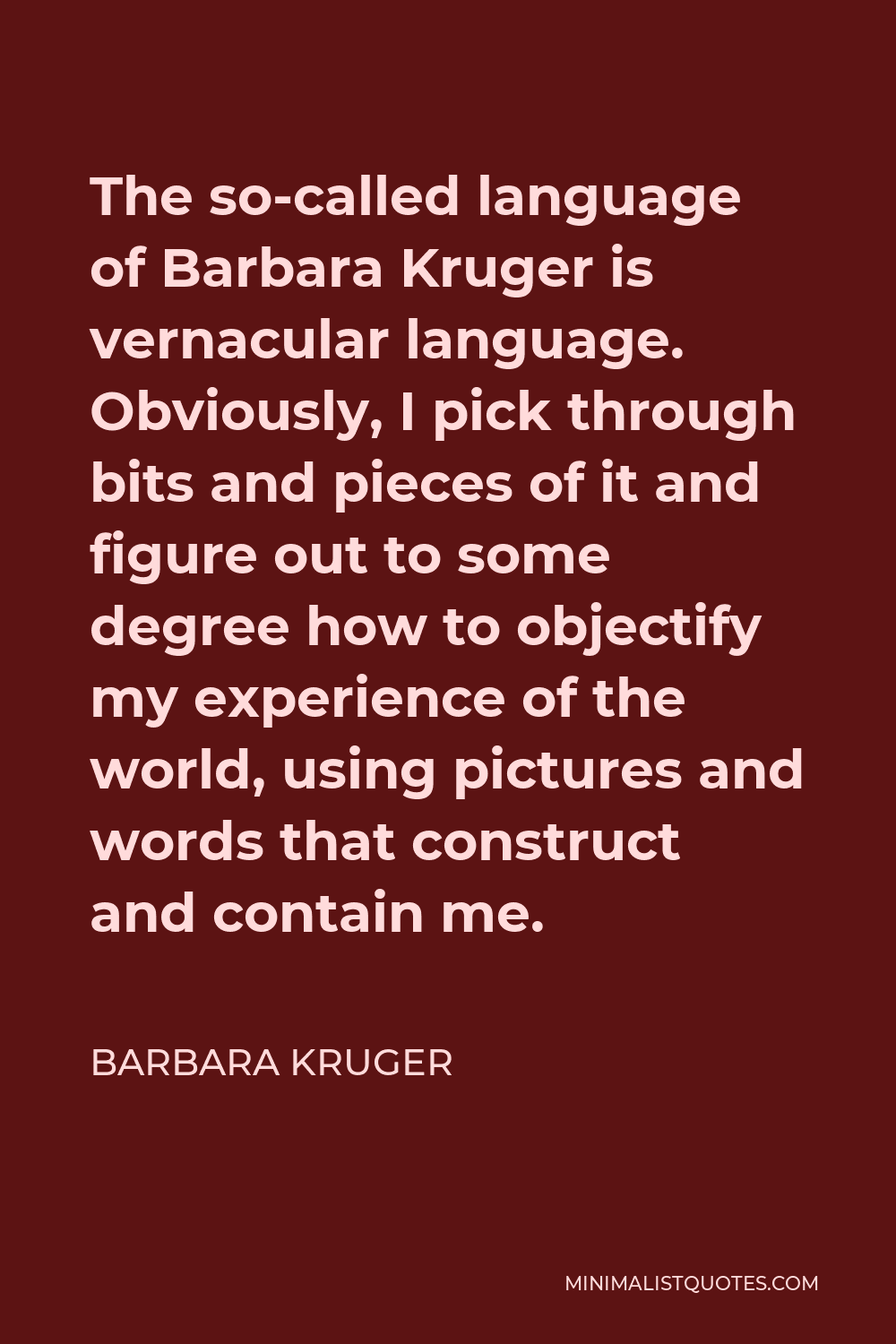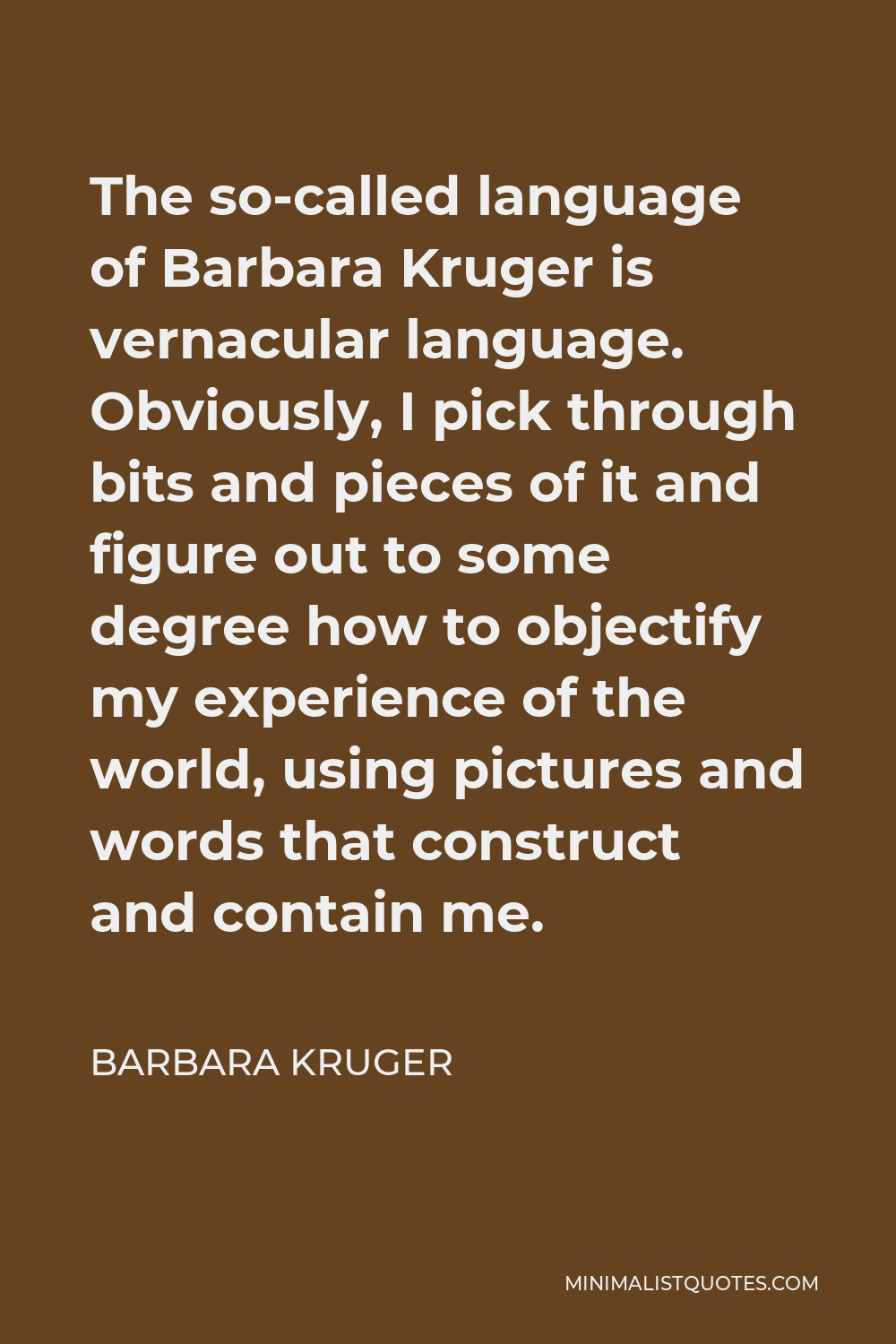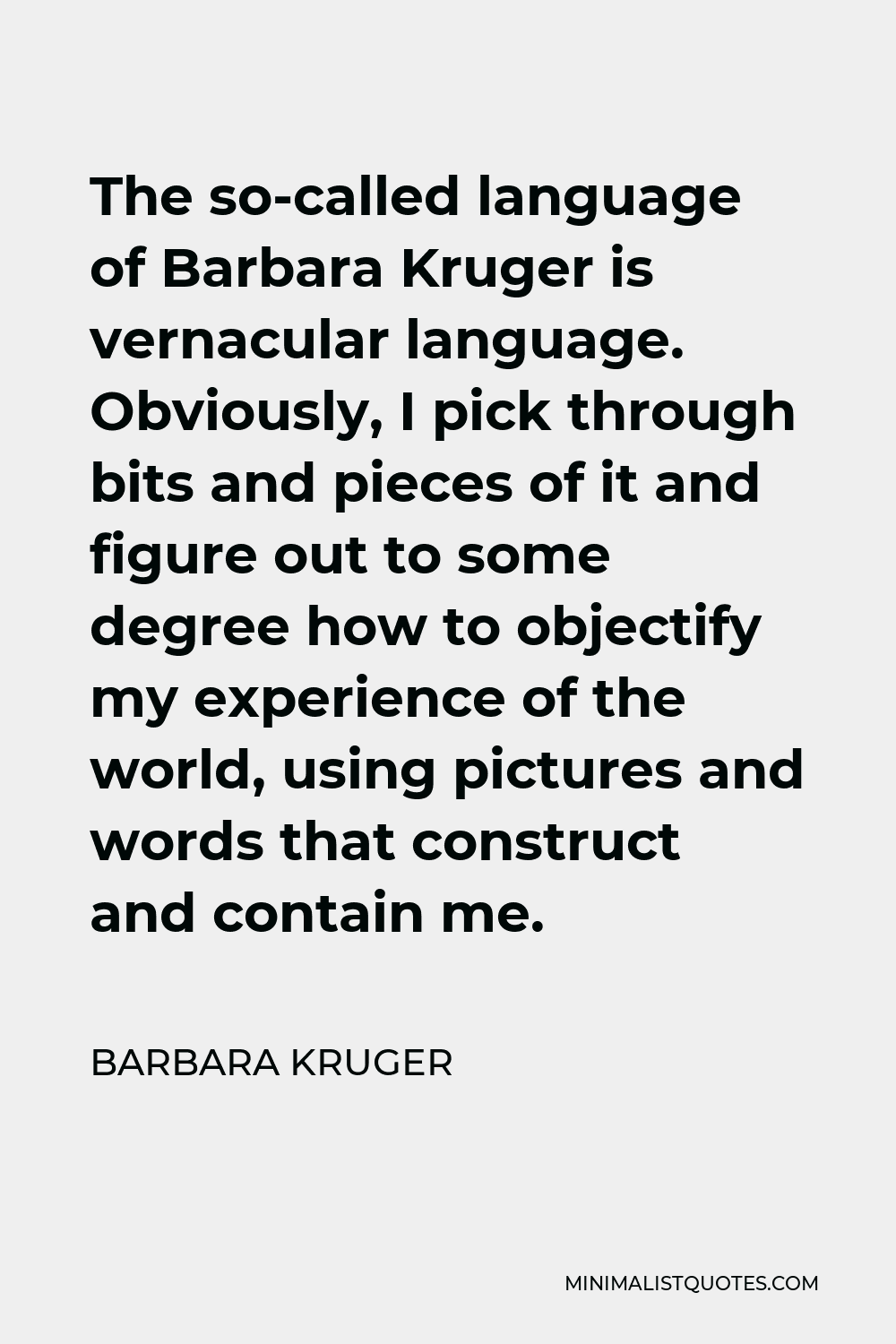I think that every so-called history book and film biography should be prefaced by the statement that what follows is the author’s rendition of events and circumstances.
BARBARA KRUGERThe so-called language of Barbara Kruger is vernacular language. Obviously, I pick through bits and pieces of it and figure out to some degree how to objectify my experience of the world, using pictures and words that construct and contain me.
More Barbara Kruger Quotes
-





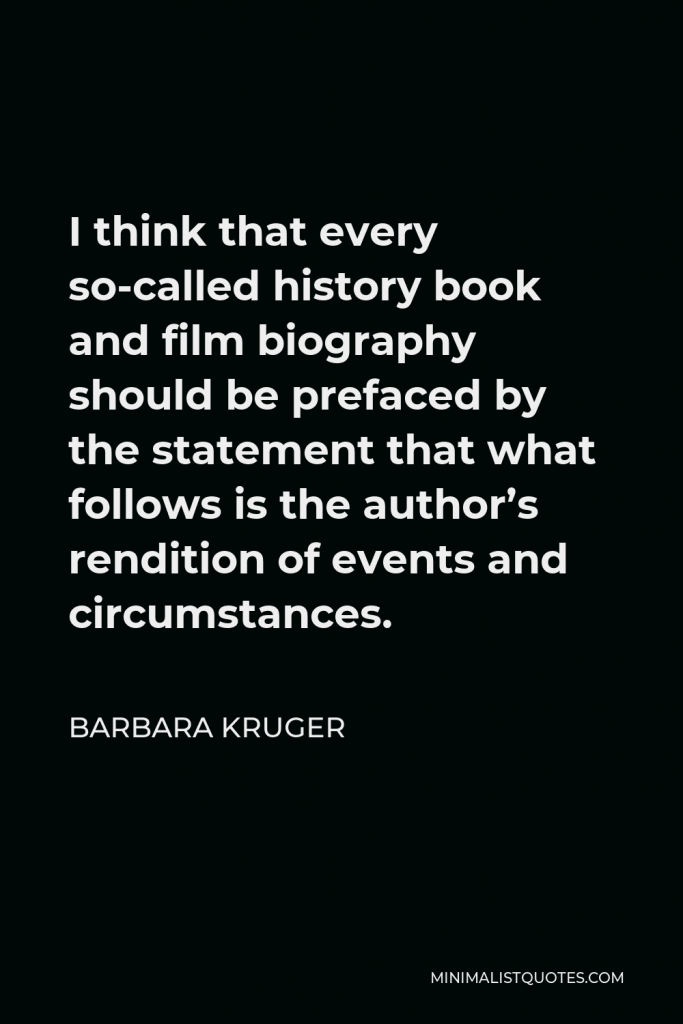

-





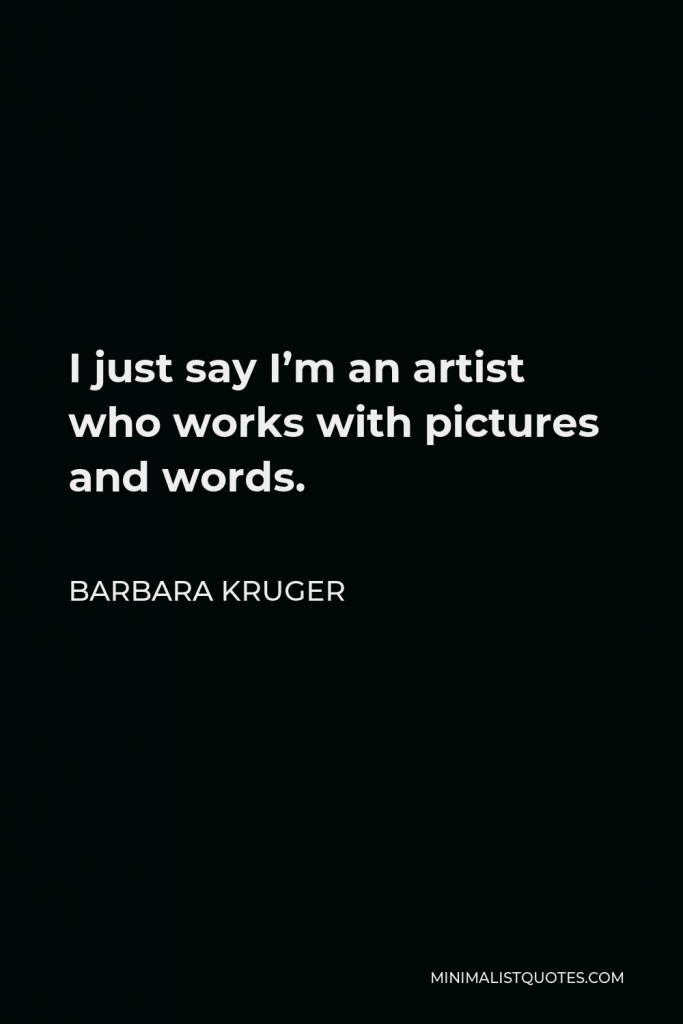

I just say I’m an artist who works with pictures and words.
BARBARA KRUGER -





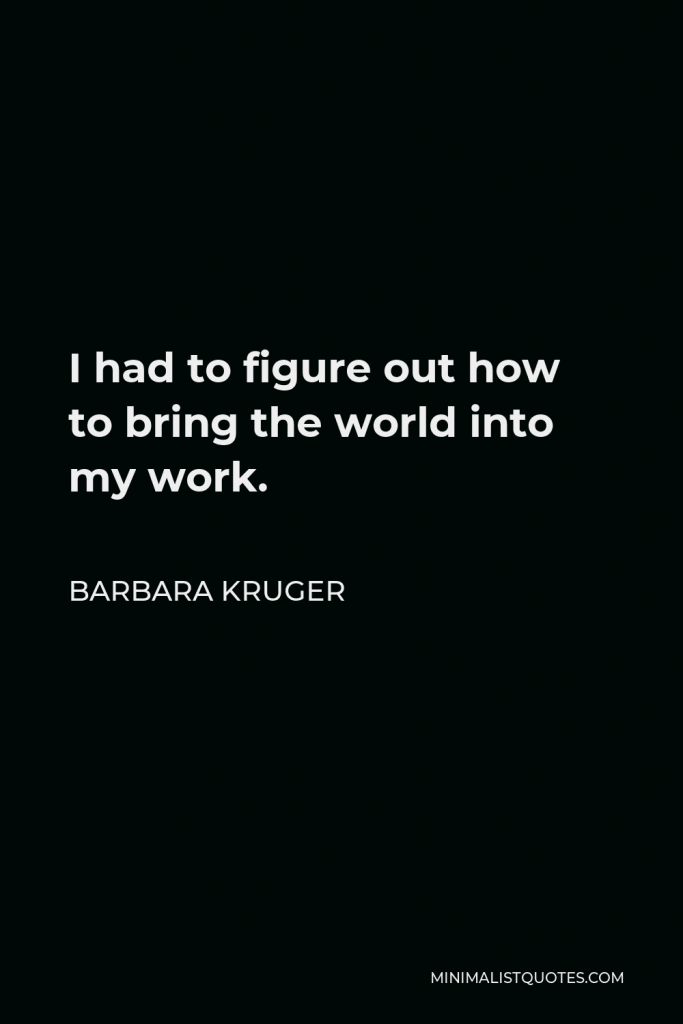

I had to figure out how to bring the world into my work.
BARBARA KRUGER -





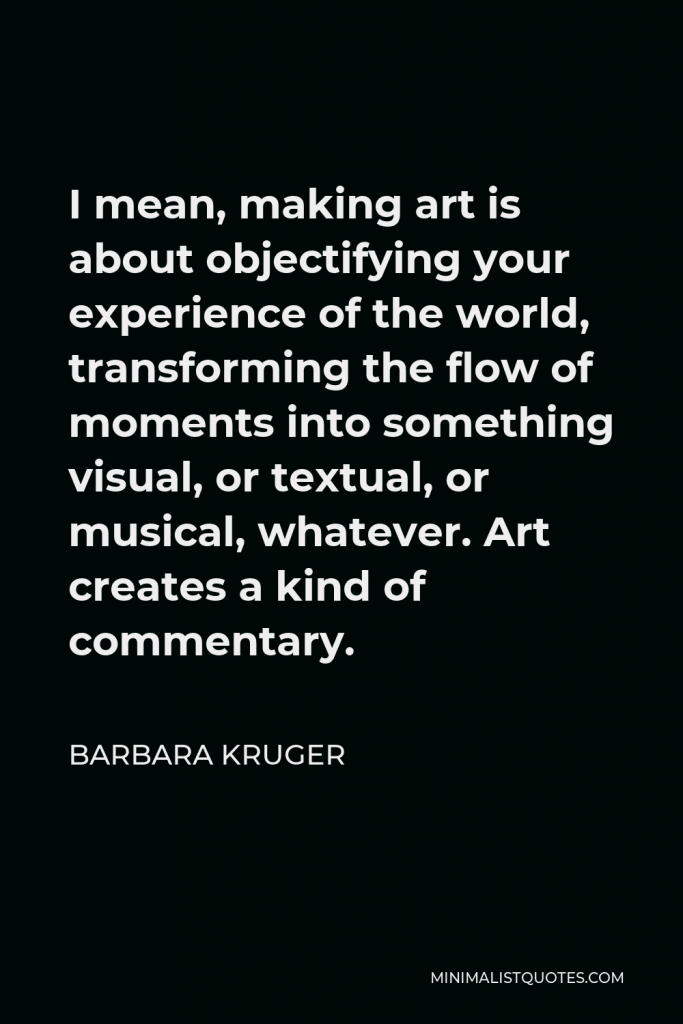

I mean, making art is about objectifying your experience of the world, transforming the flow of moments into something visual, or textual, or musical, whatever. Art creates a kind of commentary.
BARBARA KRUGER -





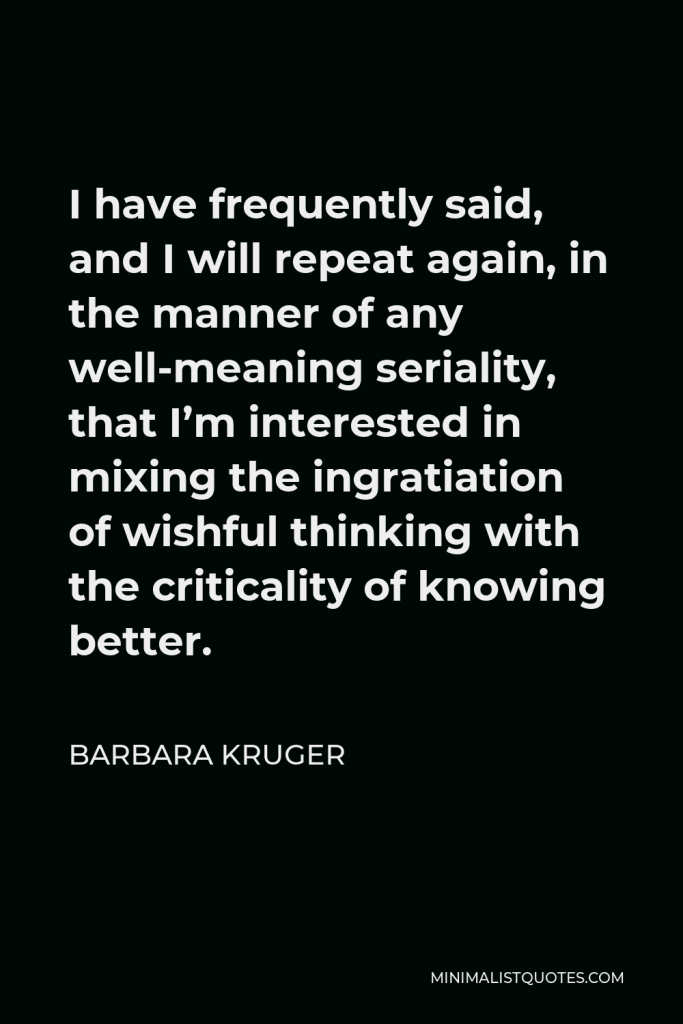

I have frequently said, and I will repeat again, in the manner of any well-meaning seriality, that I’m interested in mixing the ingratiation of wishful thinking with the criticality of knowing better.
BARBARA KRUGER -





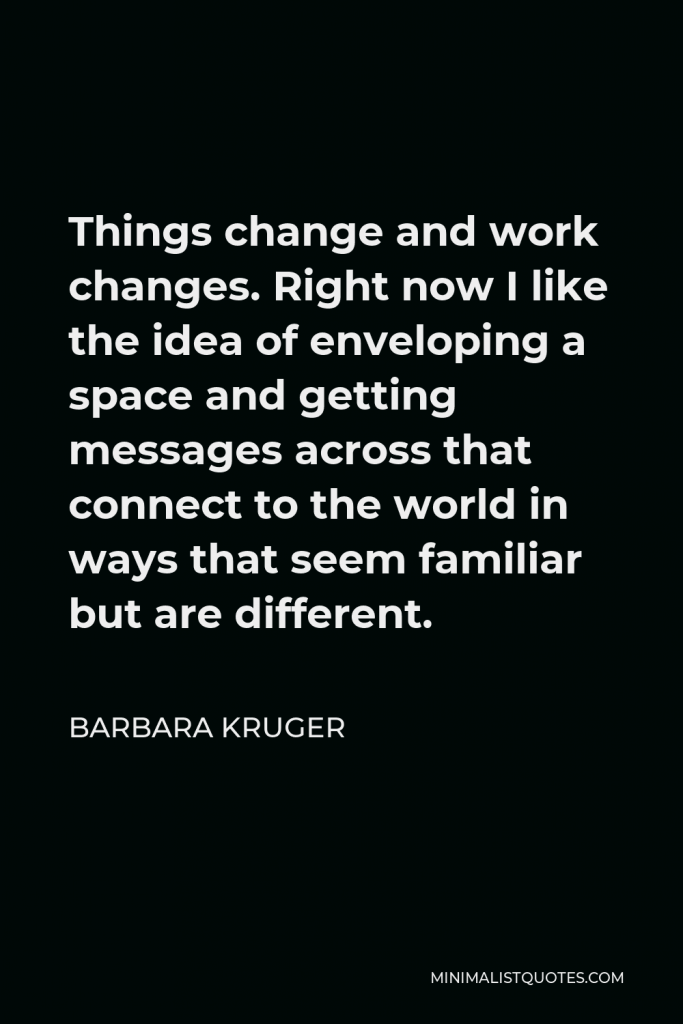

Things change and work changes. Right now I like the idea of enveloping a space and getting messages across that connect to the world in ways that seem familiar but are different.
BARBARA KRUGER -





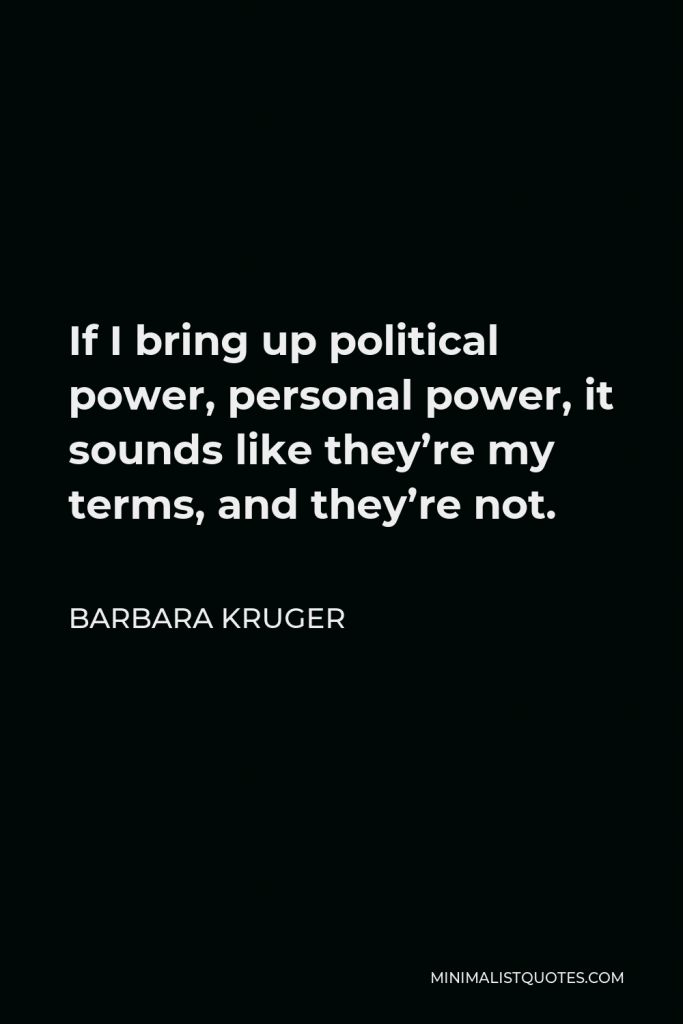

If I bring up political power, personal power, it sounds like they’re my terms, and they’re not.
BARBARA KRUGER -





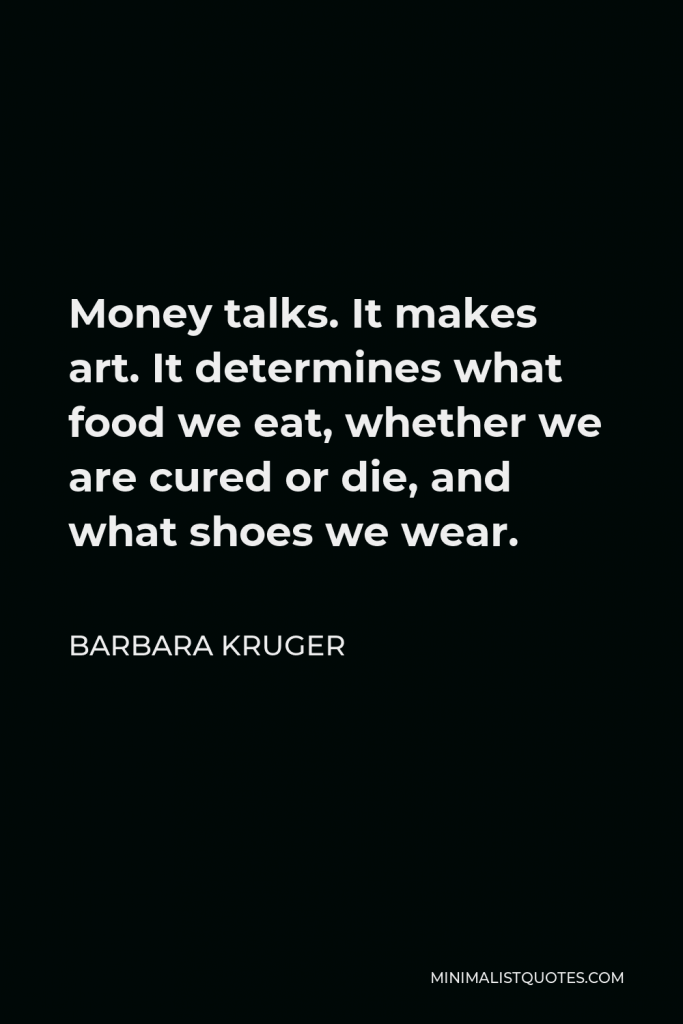

Money talks. It makes art. It determines what food we eat, whether we are cured or die, and what shoes we wear.
BARBARA KRUGER -





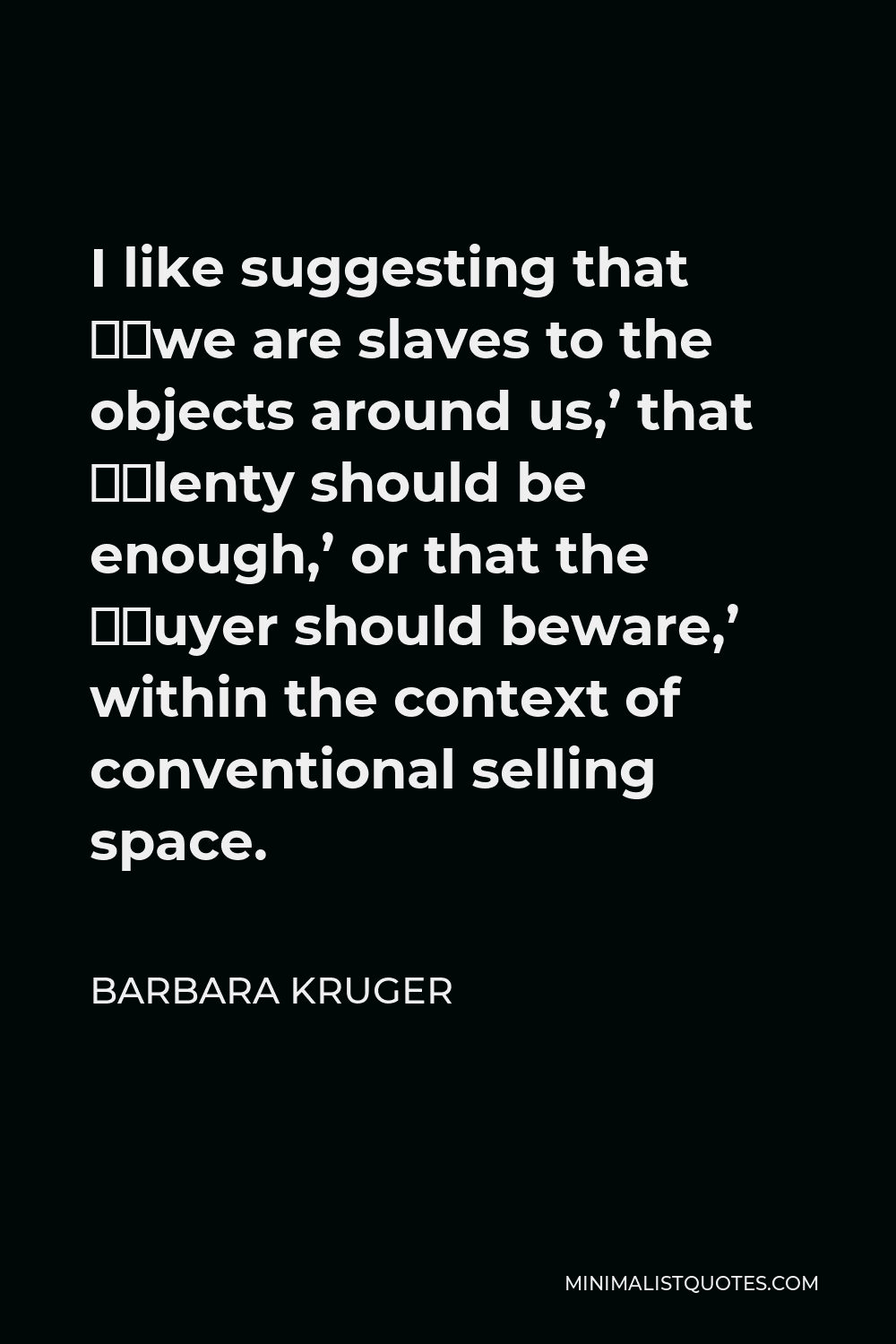
I like suggesting that ‘we are slaves to the objects around us,’ that ‘plenty should be enough,’ or that the ‘buyer should beware,’ within the context of conventional selling space.
BARBARA KRUGER -





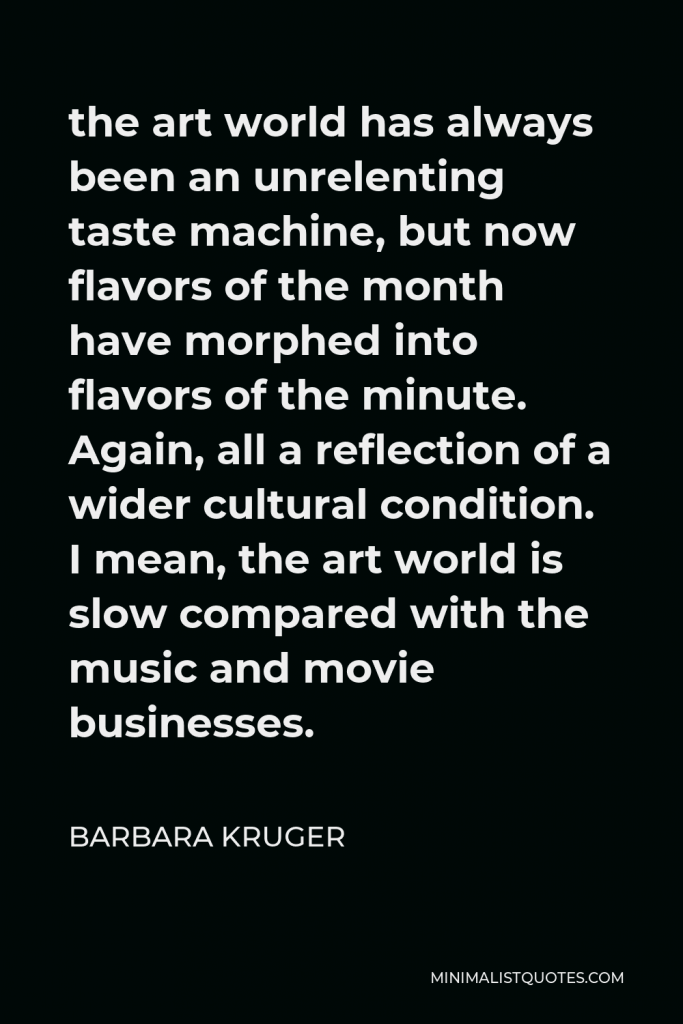

the art world has always been an unrelenting taste machine, but now flavors of the month have morphed into flavors of the minute. Again, all a reflection of a wider cultural condition. I mean, the art world is slow compared with the music and movie businesses.
BARBARA KRUGER -





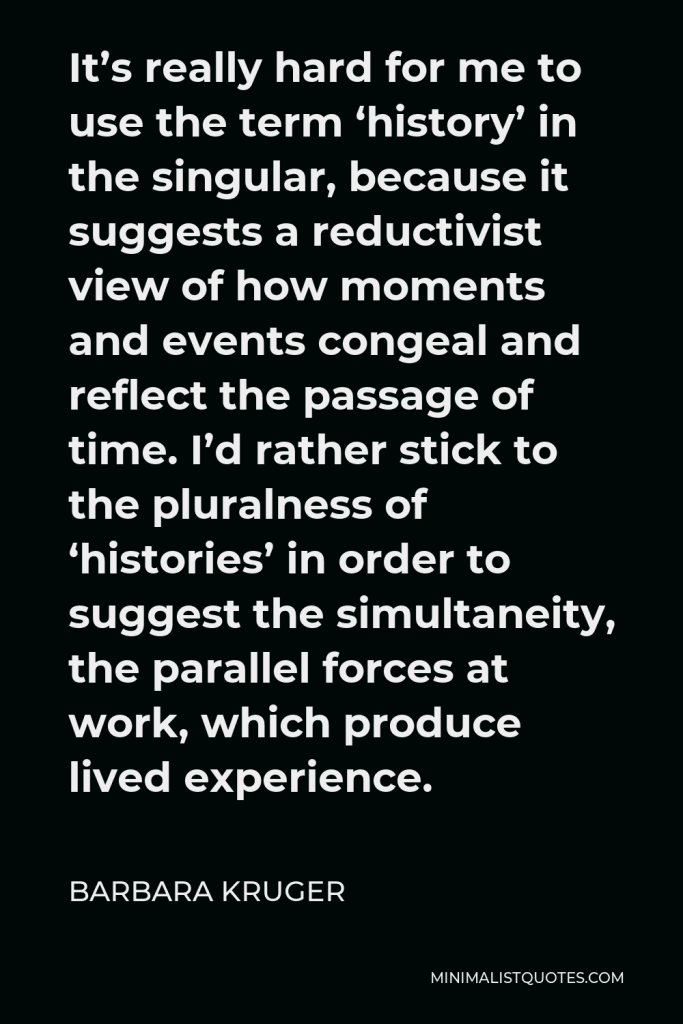

It’s really hard for me to use the term ‘history’ in the singular, because it suggests a reductivist view of how moments and events congeal and reflect the passage of time. I’d rather stick to the pluralness of ‘histories’ in order to suggest the simultaneity, the parallel forces at work, which produce lived experience.
BARBARA KRUGER -





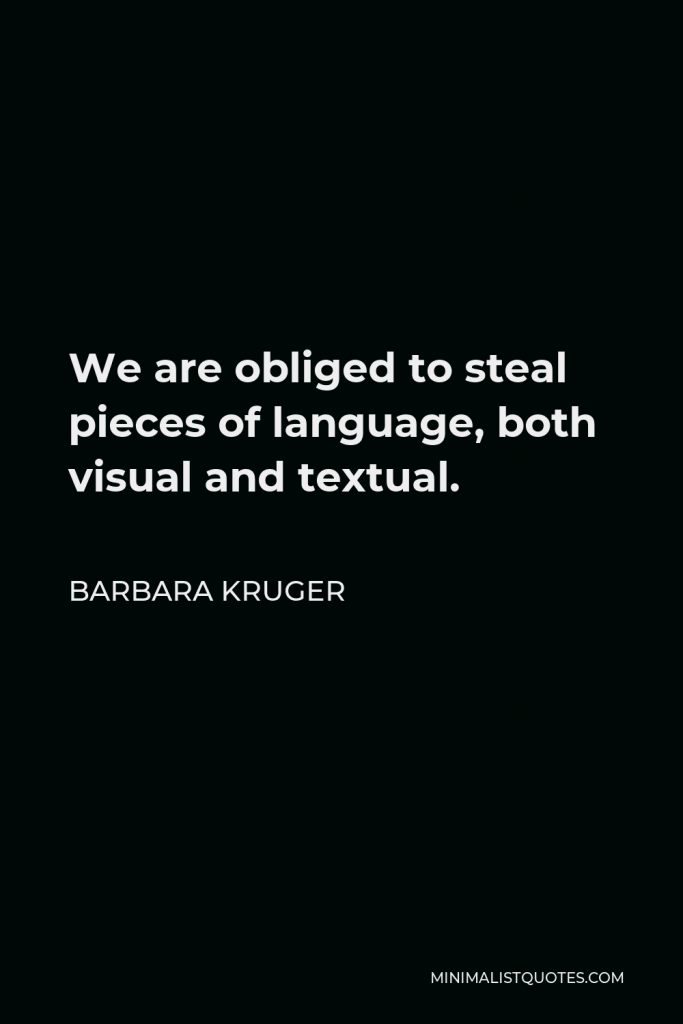

We are obliged to steal pieces of language, both visual and textual.
BARBARA KRUGER -





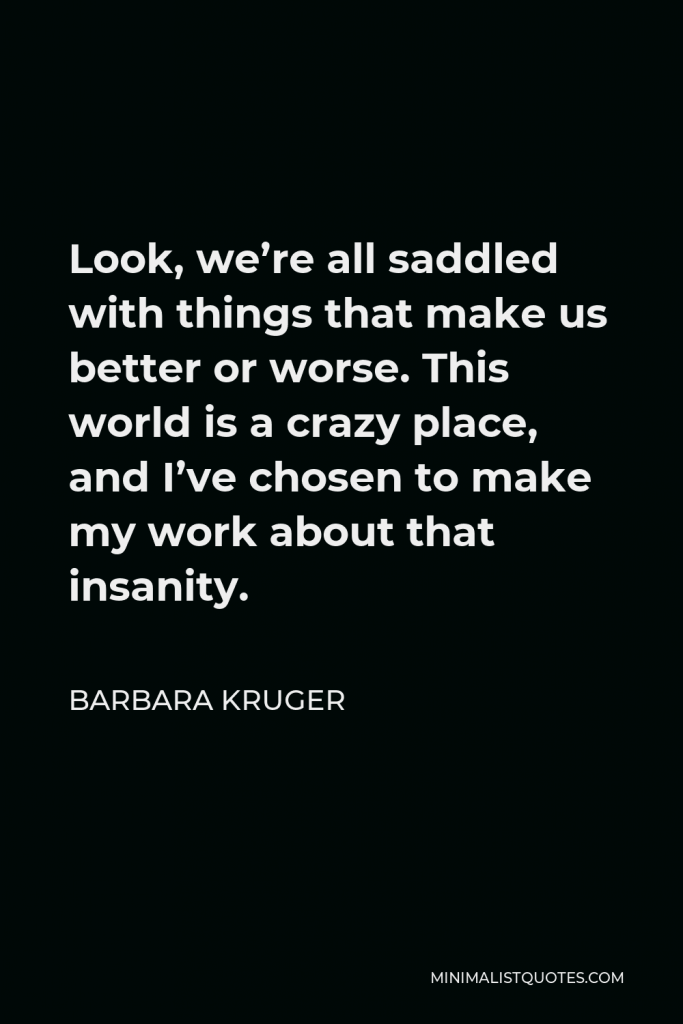

Look, we’re all saddled with things that make us better or worse. This world is a crazy place, and I’ve chosen to make my work about that insanity.
BARBARA KRUGER -





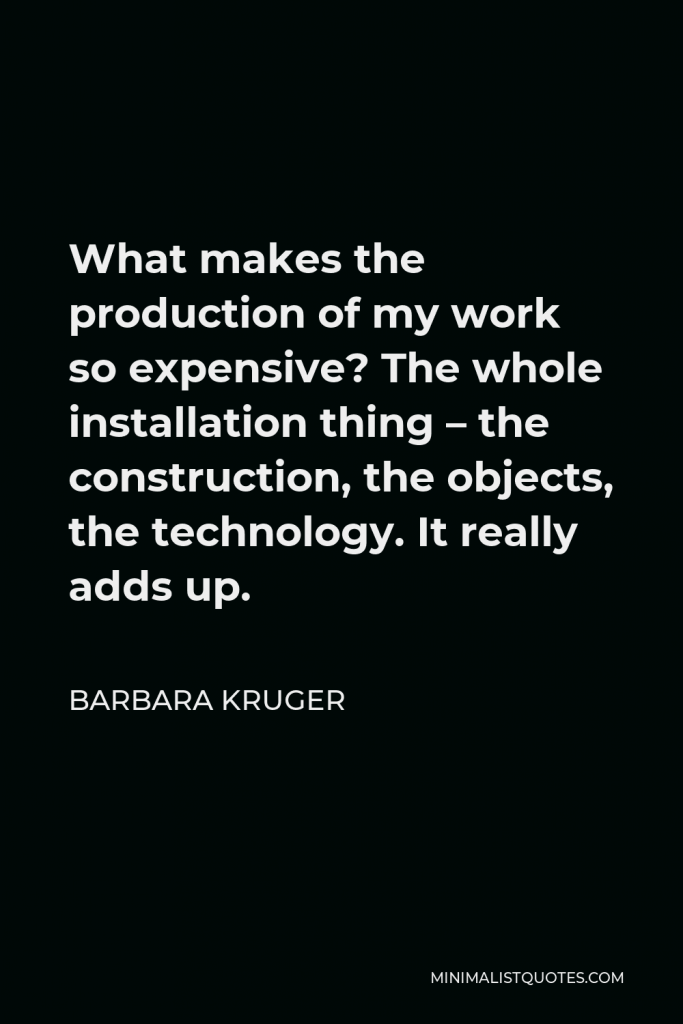

What makes the production of my work so expensive? The whole installation thing – the construction, the objects, the technology. It really adds up.
BARBARA KRUGER -





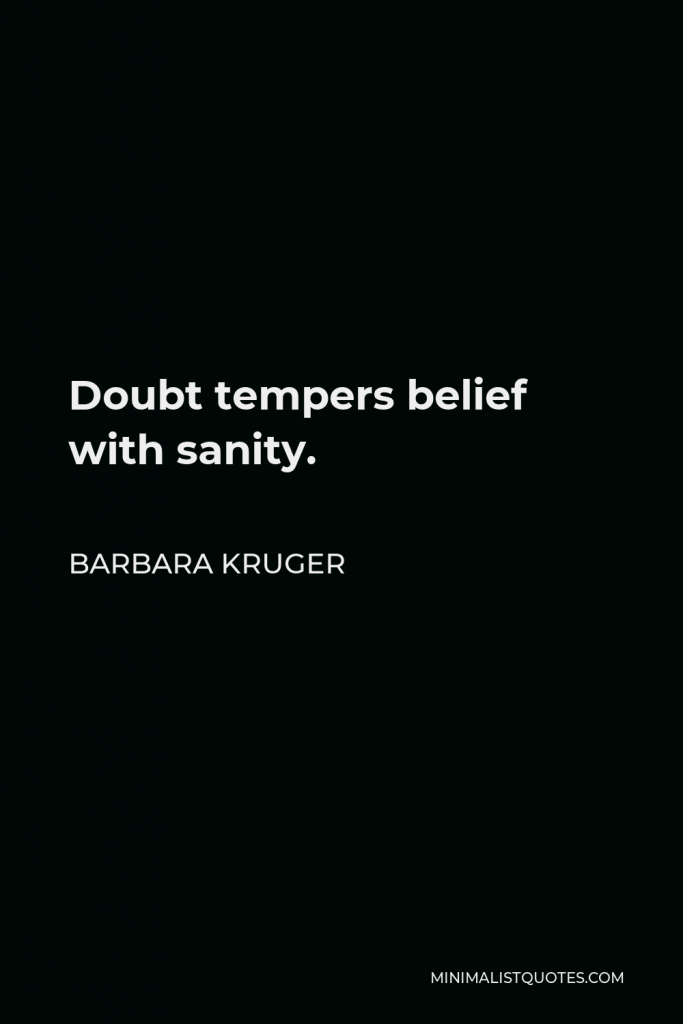

Doubt tempers belief with sanity.
BARBARA KRUGER -





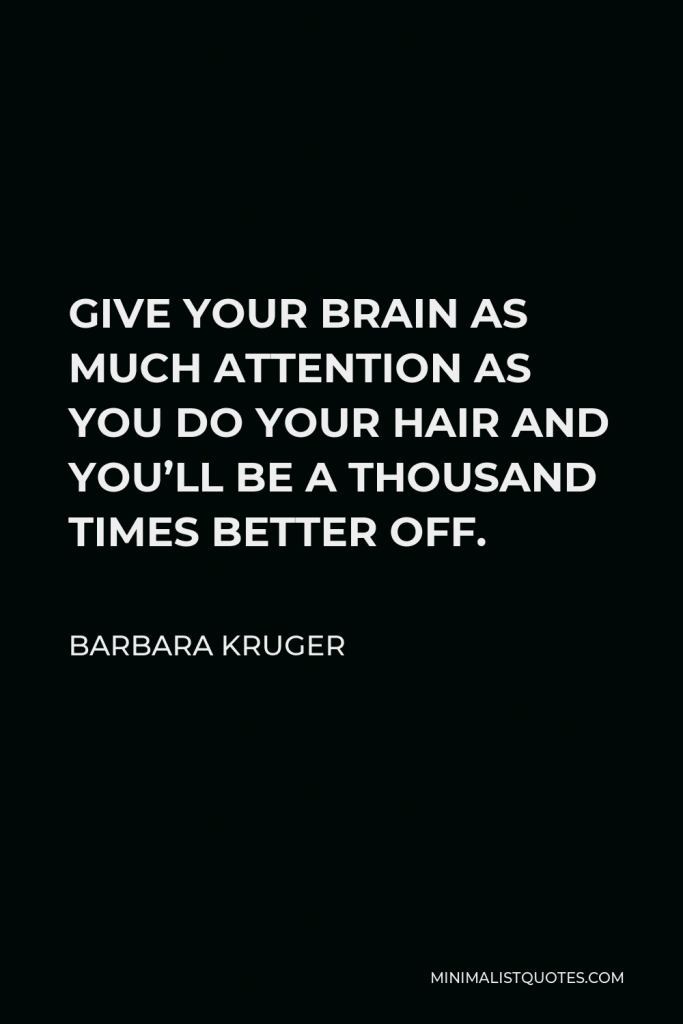

GIVE YOUR BRAIN AS MUCH ATTENTION AS YOU DO YOUR HAIR AND YOU’LL BE A THOUSAND TIMES BETTER OFF.
BARBARA KRUGER

